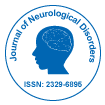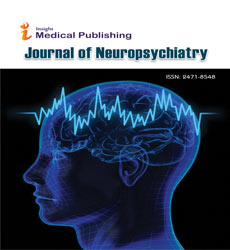We welcome you and appreciate your participation at the International Conference on “Parkinson’s and Neurodegenerative diseases” and will be organized around the theme of “Essential Innovations in Parkinson & Neuroscience”.
Parkinson 2020 will be operated by world class experts in the field of Neurology and Neuroscience, International symposiums, B2B meetings, and workshops will also be organised to discuss the specific topics in the field of Neurology like Clinical Neurophysiology, Neurosurgery, Neuron Muscular Disorders, Neuron Infectious Diseases, Paediatric Neurology, Neuropathology, Brain Tumour and Neuron-oncology and many more. The conference is aimed to identify the genetic determinants of common disorders to understand the mechanisms underlying human cognition. Neurogenesis Disorders are common among developed and developing countries. Genetic disorders and congenital abnormalities occur in around 2-5% of live births accounting for approximately 30% of paediatric hospital admissions in many places in the world. Neurogenesis conditions are generally chronic, long-term and incurable. In Netherlands approximately 10% of patients with neurological conditions have a single mutated gene as the basis for their disease. Furthermore, when polygenic inheritance is considered that is, the interplay between multiple genes and environment, a much larger proportion of neurological diseases are included. Dementia is strongly linked with age, and the Netherlands and other European countries have an increasingly ageing population. Currently 16% of the European population is over 65, with this figure expected to reach 25% by 2030. In the Netherlands it has been estimated that dementia alone costs the economy £17 billion a year.
Student Poster Competition is organized at Conference, to encourage students and recent graduates to present their original research which will be later published in the Conference Series LLC Journals. All accepted abstracts will be presented at the poster sessions during the conference. Conference Series LLC provides an opportunity to present E-Poster for all the students who cannot attend the conference with abstract published in the website with DOI number Live Streaming is a value added service offering to speaker at Conference Series LLC Conference.
Business networking is an avenue for vendors to have network and B2B meetings with “Top scientists and colleagues” and with an effective low cost marketing method for developing sales and opportunities and contacts, based on referrals and introductions either face-to-face at meetings and gatherings, or by other contact methods such as Telephone, E mail, Digital and Increasingly social and business networking websites.
Why to attend?
Parkinson 2020 will bring together experts like Neuroscientists, Clinicians, Neurogeneticst, Neurologists, Psychiatrists, Medical practitioners, Care specialists, academic professionals and students from all over the world to share an interest in the genetic pathways underlying neurological disorders, techniques to identify those genetic pathways, and the use of genetics and genomics as tools to develop therapeutics.
The aim of the conference is to provide a platform to academicians and practitioners from multiple disciplines to debate and deliberate on social change that is encompassed by innovation and technology.
Target Audience
Neurologists and Directors
Physicians
Neuroscientists
Specialists
Researchers
Health care professionals
Professors
Industrial Experts
Neurosurgeons
Psychiatrist
Nutritional Scientists
Lecturers and Students from Academia
Students from Academia in the research of Neurology
Track 1: Neurology
Neurology is the branch of medicine concerned with the examination and analysis of disorders of the nervous system. The nervous system is a complex; practical that regulates and coordinates body activities and it has two major divisions’ central nervous system and peripheral nervous system including their coverings, blood vessels, and all effector tissue, such as muscle. The doctor who specialized in neurology is known as neurologist. The neurologist trained to investigate, or diagnose and treat a neurological disorder that affects the brain, spinal cord, and nerves. Neurologists do not perform surgery if any patient requires surgery they refer to neurosurgeons.
Central nervous system
Peripheral nervous system
General Neurology
cerebrovascular disease
Behavioural neurology
Track 2 : Clinical Neurophysiology
Clinical neurophysiology is a therapeutic specialty that studies the central and peripheral nervous systems through the documentation of bioelectrical activity, whether spontaneous or stimulated. It involves the study of both pathophysiology along with clinical methods used to diagnosis both in peripheral and central nervous system. Examinations in clinical neurophysiology field are not limited to tests conducted in a laboratory. Tests which are conducted are concerned with measuring the electrical functions of the brain, nerves in the limbs & muscles and spinal cord.
Electromyography
Electroencephalography
Evoked potentials
Polysomnography
Intraoperative monitoring
Track 3: Neurosurgery
Neurosurgery is a medical specialty concerned with the prevention, diagnosis and treatment of patients with injury or diseases/disorders of the brain, spinal cord and peripheral nerves inner all parts of the body. A physician who specializes in neurosurgery is known as Neurosurgeon they are not only brain surgeons, but they can medically trained neurosurgical specialists who can also help patients suffering from back and neck pain as well as other illnesses ranging from trigeminal neuralgia to head injury and Parkinson's disease.
Vascular neurosurgery
Stereotactic neurosurgery/ functional neurosurgery
Oncological neurosurgery
Skull base surgery
Spinal neurosurgery
Paediatric neurosurgery
Track 4: Central Nervous System
The Central nervous system is the part of the nervous system consisting of the brain and spinal cord. It is referred as central because it combines information from the entire body and coordinated activity over the whole organism. CNS disorders can affect either the brain or the spinal cord which conclusion in psychiatric disorders or neurological disorders. The causes of CNS diseases are the neurology, trauma, autoimmune disorders, infections, structural defects, degeneration and tumours. So here we target on mood disorders, neurodegenerative diseases, schizophrenia and autism. Meningitis is an almost rare infection that affects the delicate membranes called meninges that cover the brain and spinal cord. By infection or allergic reactions, inflammation of brain occurs, it is known as Encephalitis.
Bipolar disorder
Neuropathic pain syndromes
Accessory nerve disorder
CNS disorder and structural defects
Facial nerve paralysis
Meningitis
Therapies for genetic disorders
Track 5: Paediatric Neurology
Paediatric neurology happens mostly in youngsters or teenagers. Neurology influences around 6 in 100,000 youngsters. Neurology in kids is of three essential sorts in whom two are ischemic neurology in which blockage of veins outcome in absence of blood stream and harm. At the point when a corridor is blocked, the term blood vessel ischemic neurology (AIS) is utilized. At the point when a vein is block, the term utilized is cerebral Sino venous thrombosis (CSVT). In the third shape, haemorrhagic neurology (HS), the vein crack as opposed to being blocked. The most known signs and side effects of neurology incorporate the sudden appearance of failing or deadness of the face, arm or leg, more often than not on one side of the body.
Movement disorders (Cerebral paresis)
Muscle diseases
Liposomal storage disease
Development disorders
Brain malformations
Track 6: Neuromuscular Disorders
Neuromuscular disorders affect the nerves that control your own voluntary muscles. Voluntary muscles are the ones which we can control by our self like in your arms and legs. Your nerve cells also called as neurons, send the messages that control these muscles. When the neurons become delicate or die, communication between your nervous system and muscles breaks down. As a result, your muscles weaken and waste away this weakness can lead to twitching, cramps, aches, pains, and joint and movement problems. Frequently it also affects heart function and your ability to breathe.
Amyotrophic lateral sclerosis
Multiple sclerosis
Myasthenia gravis
Spinal muscular atrophy
Track 7 : Psychiatry and Psychology
Psychiatry is the restorative forte committed to the determination, avoidance, and treatment of the mental issue. These incorporate different maladaptations identified with disposition, conduct, comprehension, and observations. Introductory mental appraisal of a man ordinarily starts with a case history and mental status examination. Psychology is the science of behavior and minds which including conscious and unconscious conditions as well as thought and feeling. Physical examinations and mental tests might be directed examples like neuroimaging or other neurophysiological procedures are utilized.
Psychology
Types of psychotherapy
Hypnotherapy
Counselling and psychotherapy
Track 8: Spine and Spinal Disorders
Spine disorders occur in individuals irrespective of their age -spina bifida in infants to spinal stenosis in the elderly. Causes of spinal cord disorders include mainly injuries, infections, blocked blood supply, and compression by a fractured bone or a tumor. The boost in spinal disorders has been met with a leap in advancements in the diagnostic techniques. Endoscopic spine, MRI, X- rays CT and DEA are some of the generally used tools in diagnosing spinal disorders.
Scoliosis
Lumbar spinal stenosis
Spina bifida
Cauda equina syndrome
Tumors
Track 9 : Neurogenetic and Neurometabolic Disorders
Neurogenetic and neurometabolic abnormalities are disorders that affect how the brain functions. They occur in young children of all ages, races and genders. Neurogenetic disease is the umbrella term of chronic diseases which describe the brain abnormalities that occur following changes in the genes of the child and these cause certain brain cells to develop and function abnormally. In the case of neurometabolic abnormalities; these disorders result from problems in the enzymes of the body’s cells which are either unable to either use foods to produce the energy the cell needs, or get rid of the breakdown products of the foods used.
Biochemical genetics
Gene mutation and disease
Neural engineering
Genetic engineering and gene sequencing
Cancer neurogenetics
Huntington disease
Track 10 : Neuropharmacology
Neuropharmacology is the examination of how drugs influence cellular function in the nervous system and the neural system through which they influence behavior. There are two branches of neuropharmacology behavioral and molecular. Behavioral mainly focuses on the study of how drugs that affects human behavior (neuropsychopharmacology) including the study of how drug dependence and addiction affect the human brain. Molecular neuropharmacology involves the study of neurons and their neurochemical communication with the overall goal of developing drugs that have beneficial effects on neurological function.
Anti-anxiety drugs
Recent drug development
Neuroimmuno pharmacology
Neuro chemical interaction
Latest advancement in neuropharmacologcal therapy
Genome wide association studies
Biochemical genetics


